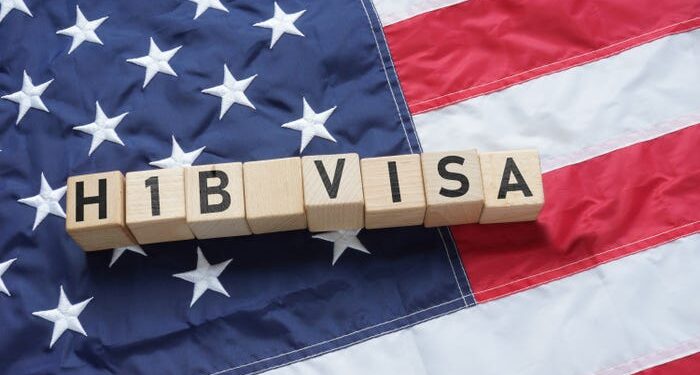India’s $245 billion information technology industry is grappling with anxiety after the United States imposed a $100,000 fee for new H-1B visa applications, a move that threatens to reshape career opportunities, disrupt business models, and derail the “American dream” for thousands of Indian engineers.
For IT professionals like Reshma Elizabeth from Pandalur, Tamil Nadu, the news has cast a shadow over carefully laid plans.
“I’m confused. Will my company still send me or ask me to contribute? I honestly don’t know,” she said from her Chennai office, echoing the uncertainty felt across India’s tech corridors.
Policy Details and Clarifications
The White House clarified that existing H-1B visa holders are not impacted by the new fee and need not rush back to the US. The policy applies only to future applications, but its long-term effects on India’s IT talent pipeline and US-bound study plans are already visible.
Regional Economic Impact
Tamil Nadu — often dubbed the “back office of the world” — and Karnataka, India’s tech capital, are expected to feel the brunt of the decision. Industry data suggests that 40–50% of mid-level engineers in large firms have either worked on H-1B visas or aspire to.
For families like that of Coimbatore farmer Satheesh Kumar, whose son recently secured Optional Practical Training (OPT) in the US, the fee hike presents a new financial challenge.
“We were just relieved when he got his break. Now the family has to figure out how to raise extra money. It is not easy for people like us,” Kumar said.
Two-Tier System Likely to Emerge
Industry leaders warn that the new fees may split the workforce, with large multinationals absorbing the cost while smaller firms and consultancies may struggle.
Mahesh Kapoor, CEO of a Whitefield-based startup, cautioned that the policy will “hit the heart of India’s IT growth story.”
An HR manager from a major tech firm in Chennai added:
“The new fees create two classes of professionals — those backed by big companies that can pay, and those left stranded by smaller firms. Many may now explore Canada or Europe instead.”
Some See Opportunity in Disruption
Not all voices are pessimistic. Mohandas Pai, Infosys veteran and investor, said the move would accelerate offshore delivery and strengthen India’s Global Capability Centers (GCCs).
Snapdeal co-founder Kunal Bahl called it a chance for “reverse migration,” predicting an influx of top talent back to India, boosting domestic innovation.
Impact on US Firms
Experts also warned that the US might face a shortage of skilled talent, given its reliance on Indian engineers.
Kochi-based IT infrastructure manager Anish Panthalani said,
“More than Indians, the US firms are likely to be affected in the long run. They cannot replace this talent pool overnight.”
Students and Young Professionals Hit Hardest
Students planning US education and OPT opportunities are among the most anxious. M. Shruthi, an IT professional from Hosur, said:
“The new costs make everything uncertain. It feels like the rules are being changed halfway through the game.”
For many, the H-1B visa represented not just a job, but professional exposure and global learning. Now, as one Chennai-based employee put it,
“That door looks almost closed.”





























